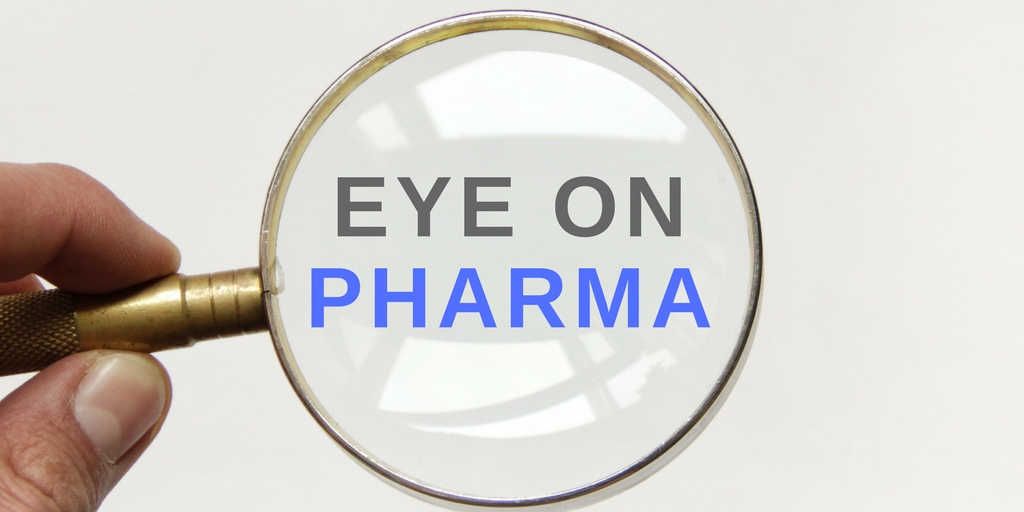- Bone Health
- Immunology
- Hematology
- Respiratory
- Dermatology
- Diabetes
- Gastroenterology
- Neurology
- Oncology
- Ophthalmology
- Rare Disease
- Rheumatology
Eye on Pharma: Eylea Biosimilar Violation; New FDA Labeling Guidance; Alvotech Reinspection
A Korean health agency issued Samsung Bioepis an administrative penalty related to its biosimilar referencing Eylea (aflibercept); the FDA updates its labeling recommendations for interchangeable biosimilars; Alvotech receives another Form 483 after the FDA reinspected its Iceland-based manufacturing facility.

A Korean health agency issued Samsung Bioepis an administrative penalty related to its biosimilar referencing Eylea (aflibercept); the FDA updates its labeling recommendations for interchangeable biosimilars; Alvotech receives another Form 483 after the FDA reinspected its Iceland-based manufacturing facility.
Korean Agency Issues Administrative Penalty
The Korean Ministry of Food and Drug Safety (MFDS) has imposed an administrative penalty, equivalent to a 1.5-month suspension of clinical trials, on Samsung Bioepis for regulatory violations during a clinical study, according to a report from Korea Biomedical Review.
Specifically, the violation pertained to Samsung Bioepis' aflibercept biosimilar, SB15, which has already completed a trial to compare efficacy, safety, and other parameters with the original drug (Eylea) in treating neovascular age-related macular degeneration.
The MFDS highlighted that Samsung Bioepis altered the approved validity period of the clinical trial drugs without obtaining required modification approval and deviated from approved labeling requirements. Consequently, the ministry ordered a suspension of the company's clinical trial operations until February 2, 2024, citing a violation of the Pharmaceutical Affairs Act.
In response, a Samsung Bioepis official clarified that the administrative penalty would not affect the clinical trial itself, which concluded in March 2022. The company attributed the issue to differing interpretations between Samsung Bioepis and regulatory authorities regarding global licensing standards for clinical trials.
"We respect the MFDS decision and will work more closely with MFDS to comply with its regulatory guidelines," commented a Samsung Bioepis representative to The Center for Biosimilars®.
FDA Updates Labeling Guidance
The FDA has issued an update on its labeling recommendations for biosimilars, indicating that companies should include a unified “Biosimilarity Statement” describing a product’s relationship to the reference product regardless of whether it’s labeled as interchangeable.
Prior to the change, the FDA recommended that companies include a Biosimilarity Statement or an “Interchangeability Statement.” This was intended to distinguish regular biosimilars from interchangeable biosimilars. However, there is a lot of confusion in the space about whether interchangeability indicates a higher performing product compared with other biosimilars, which it does not.
The FDA provided some examples of what these statements should include, using fictitious brand names:
- Biosimilarity Statement: NEXSYMEO (replicamab-cznm) is biosimilar to JUNEXANT (replicamab-hjxf)
- Interchangeability Statement: NEXSYMEO (replicamab-cznm) is interchangeable to JUNEXANT (replicamab-hjxf)
The update, written by Sarah Yim, MD, director of the FDA’s Office of New Drugs’ Office of Therapeutic Biologics and Biosimilars, also included guidance for prescribing information, which is aimed at health care professionals and prioritizes scientific information about interchangeability. The aim was to address concerns arising from mixed biosimilar and interchangeable biosimilar applications.
Alvotech Reinspection Results in Form 483
After another reinspection of its Reykjavik, Iceland, manufacturing facility, the FDA has issued a Form 483 to Alvotech with 1 observation that needs to be addressed, according to BioProcess International. The reinspection came after Alvotech received complete response letters for its adalimumab (AVT02) and ustekinumab (AVT04) biosimilar candidates, which cited issues with the facility.
The purpose of Form 483 is to document and communicate any observations made by the FDA investigator during the inspection that may indicate potential violations of the Food, Drug, and Cosmetic Act or related regulations.
The notations documented in a Form 483 do not serve as definitive conclusions or official regulatory measures. Instead, they point out specific areas where the FDA suspects the company might be breaching compliance standards. The company is required to provide a response detailing the corrective actions either implemented or planned to rectify the identified issues.
“We believe that the observation is readily addressable, and we intend to respond as quickly as possible,” said Róbert Wessman, CEO of Alvotech.
Once Alvotech has addressed the concerns, the FDA can continue reviewing resubmissions for AVT02 and AVT04. The agency is expected to make a decision on approval by February 24 for AVT02 and April 16 for AVT04.
Reference
1. Lee H-S. Regulator suspends clinical trial of Samsung Bioepis' Eylea biosimilar for misconduct. Korea Biomedical Review. December 18, 2023. Accessed January 23, 2024. https://www.koreabiomed.com/news/articleView.html?idxno=22812
2. Yim S. Updated FDA labeling recommendations for biosimilar and interchangeable biosimilar products. January 16, 2024. Accessed January 23, 2024. https://www.fda.gov/drugs/our-perspective/updated-fda-labeling-recommendations-biosimilar-and-interchangeable-biosimilar-products
3. Stanton D. Alvotech receives another 483 at biosimilar plant. BioProcess International. January 22, 2024. Accessed January 23, 2024. https://bioprocessintl.com/bioprocess-insider/regulations/alvotech-receives-another-483-at-biosimilar-plant/
Newsletter
Where clinical, regulatory, and economic perspectives converge—sign up for Center for Biosimilars® emails to get expert insights on emerging treatment paradigms, biosimilar policy, and real-world outcomes that shape patient care.
